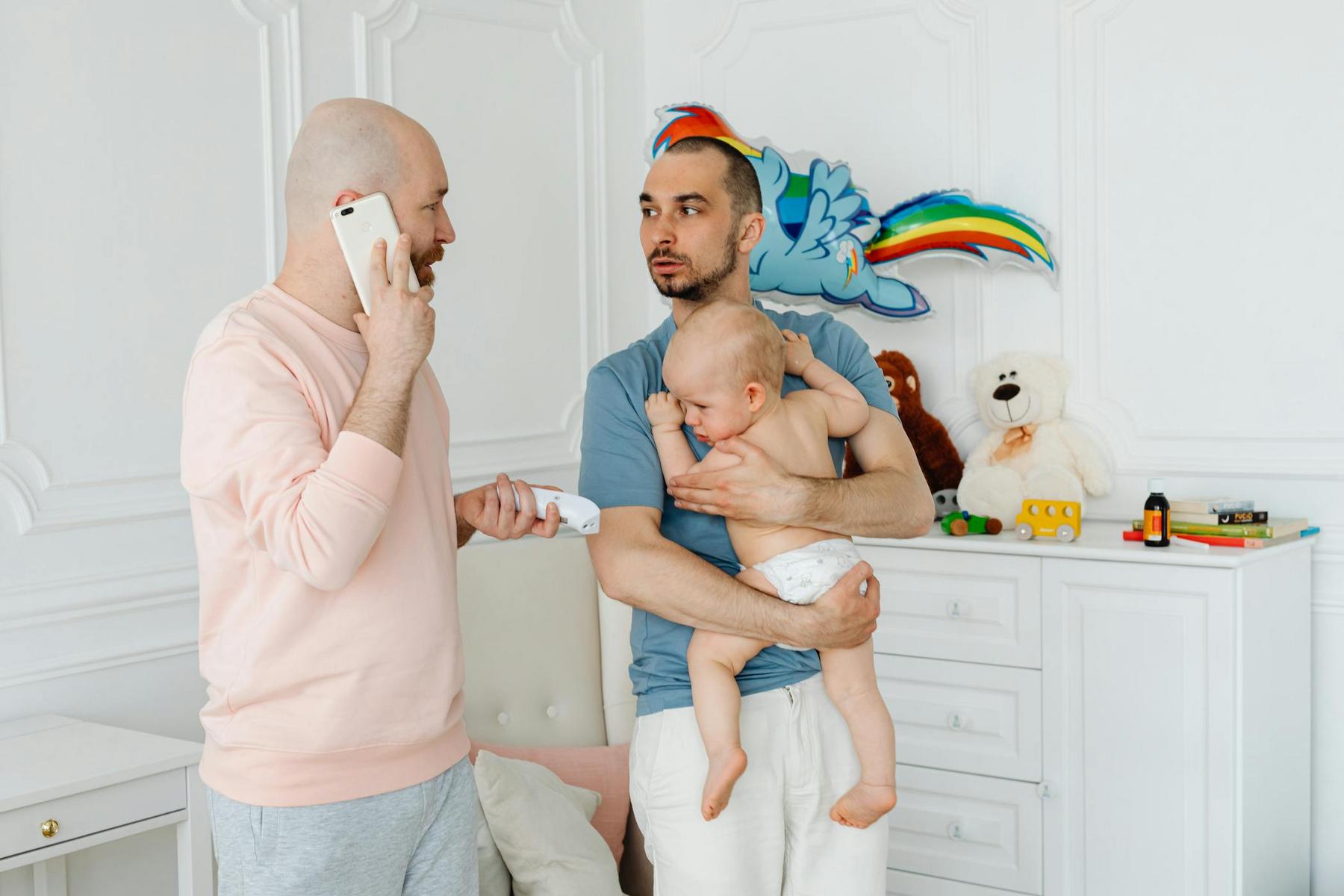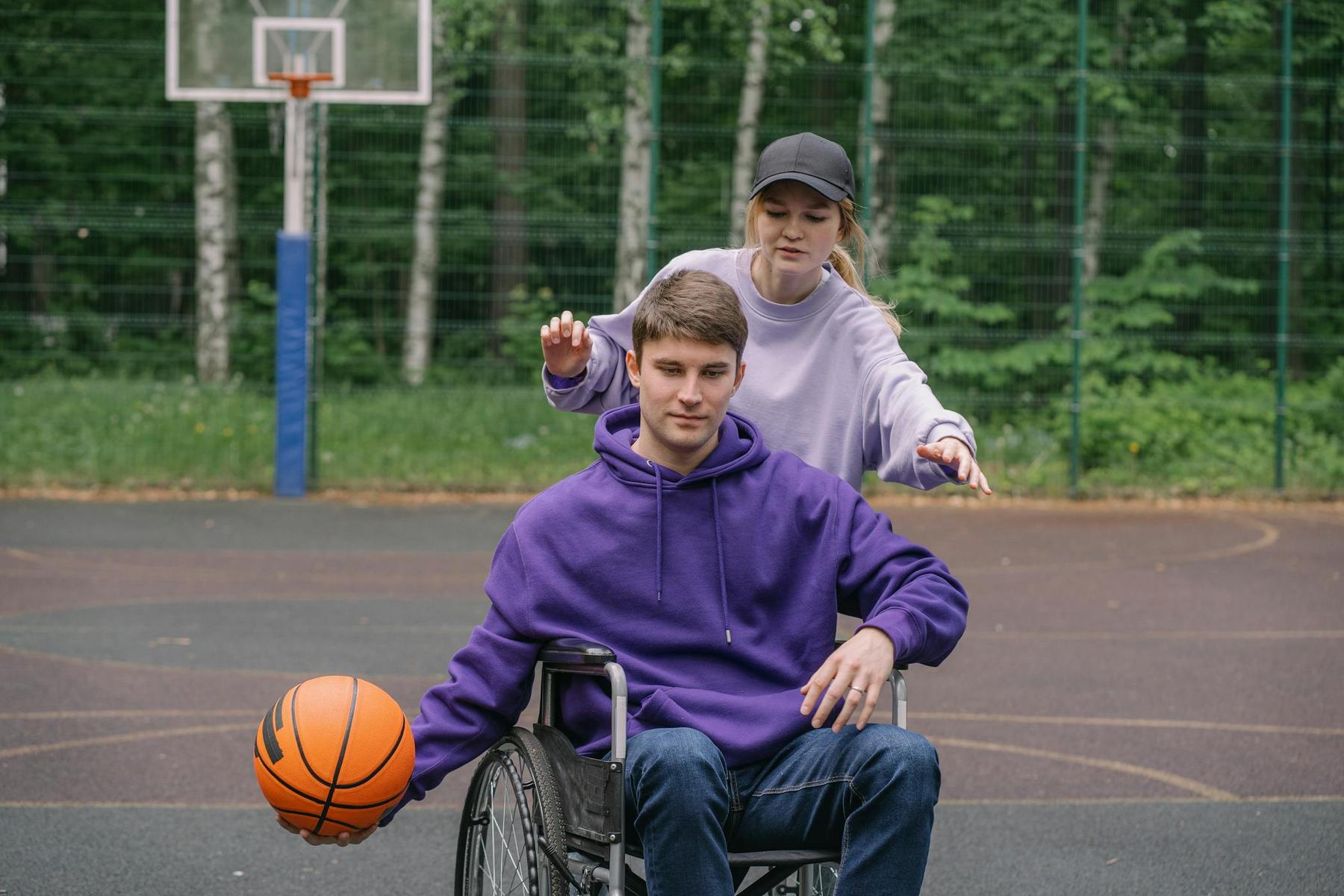When your loved one lives with multiple disabilities, each day can feel like navigating a maze without a map. You’re juggling appointments with different specialists, managing medications, coordinating therapies, and trying to ensure every support worker understands the full picture of your family member’s needs. The weight of this responsibility doesn’t just tire you—it can overwhelm the very person you’re trying to help. What if there was a better way to bring all these pieces together?
Complex care management transforms this fragmented approach into a cohesive, person-centred strategy that recognises the interconnected nature of multiple disabilities. Rather than treating each condition in isolation, effective coordination creates a unified support framework that addresses the whole person whilst respecting their autonomy, preferences, and life goals.
What Is Complex Care Management for Multiple Disabilities?
Complex care management in Brisbane represents a structured, collaborative approach to supporting individuals whose disabilities intersect and compound one another. When someone experiences multiple conditions—such as cerebral palsy alongside intellectual disability, or autism spectrum disorder combined with epilepsy and mobility challenges—their support needs become exponentially more intricate than the sum of their individual diagnoses.
This specialised coordination involves bringing together diverse healthcare professionals, disability support workers, therapists, and family members to create an integrated care plan. The coordinator acts as the central point of contact, ensuring that every element of support aligns with the participant’s goals whilst preventing duplication, gaps, or conflicting approaches.
Person-centred care forms the foundation of effective complex care management. This philosophy places the individual at the heart of all decision-making, recognising that they are the expert on their own life. Rather than imposing predetermined support models, person-centred approaches honour personal preferences, cultural backgrounds, communication styles, and individual definitions of quality of life.
For families in both Brisbane and Cairns, accessing this level of coordination can mean the difference between constant crisis management and sustainable, empowering support that allows everyone to thrive.
How Does Coordination Improve Outcomes for People with Multiple Disabilities?
The true power of complex care management lies in its ability to create synergy between different support elements. When multiple disabilities exist simultaneously, treatments and supports for one condition can inadvertently complicate another. Without careful coordination, a participant might receive conflicting advice from different professionals, experience medication interactions, or find that therapy schedules exhaust rather than energise them.
Effective coordination reduces these risks by:
Creating Comprehensive Communication Pathways
When all members of a support team communicate regularly and transparently, they can identify potential conflicts before they become problems. A physiotherapist can alert a behaviour support practitioner about pain-related behaviours, whilst occupational therapists can inform personal care workers about the most supportive techniques for daily activities.
Streamlining Administrative Burdens
Families managing multiple disabilities often spend countless hours repeating medical histories, coordinating schedules, and ensuring each provider has current information. Complex care coordinators consolidate these tasks, maintaining up-to-date records and facilitating information sharing between all parties with appropriate consent.
Identifying Gaps and Opportunities
Through their holistic view, coordinators can spot unmet needs that individual providers might miss. They might recognise that assistive technology could reduce physical strain, or that community access programs could address social isolation whilst building independence skills.
Supporting Crisis Prevention
Rather than responding to emergencies, proactive coordination anticipates challenges. By monitoring patterns and maintaining close communication with families and support workers, coordinators can implement preventative strategies before situations escalate.
What Are the Key Components of Effective Complex Care Management?
Successful complex care management in Brisbane and Cairns relies on several interconnected elements that work together to create truly responsive, person-centred support.
| Core Component | Purpose | Impact on Participants |
|---|---|---|
| Comprehensive Assessment | Evaluates all aspects of support needs, strengths, and goals | Ensures support plans address the complete picture, not isolated symptoms |
| Interdisciplinary Collaboration | Brings together diverse professionals for unified planning | Prevents conflicting approaches and maximises therapeutic benefits |
| Cultural Competence | Respects and incorporates cultural values and practices | Builds trust and ensures support aligns with personal identity |
| Family Partnership | Recognises family members as essential care team members | Leverages existing knowledge and strengthens support sustainability |
| Continuous Quality Improvement | Regularly reviews and adjusts support strategies | Keeps care responsive to changing needs and emerging best practices |
| Risk Management | Proactively identifies and mitigates potential safety concerns | Protects wellbeing whilst promoting informed risk-taking for growth |
Specialist Support Coordination
Not all complex care situations require the same level of coordination intensity. Specialist support coordination represents the highest tier of NDIS coordination services, designed specifically for participants with multiple complex needs. This level involves coordinators with advanced expertise who can navigate particularly challenging situations, including high-intensity supports, complex behavioural needs, or intricate medical requirements.
Individuals who benefit from specialist coordination often have multiple diagnoses that interact in unpredictable ways, require significant assistance with daily activities, or face substantial barriers to accessing appropriate supports. The specialist coordinator doesn’t just link people to services—they actively build capacity within support networks, advocate for systemic changes, and develop innovative solutions when standard approaches fall short.
Positive Behaviour Support Integration
When complex disabilities include challenging behaviours, integrating positive behaviour support becomes crucial. Rather than viewing behaviours as problems to eliminate, this evidence-based approach seeks to understand the communication and needs underlying these actions. Complex care coordinators work closely with behaviour support practitioners to ensure that all team members understand the functions of behaviours and implement consistent, respectful strategies that reduce distress whilst teaching alternative skills.
Who Benefits from Specialist Complex Care Coordination in Brisbane and Cairns?
Complex care management serves a diverse range of individuals whose support needs extend beyond standard disability services. Understanding whether specialist coordination would benefit you or your loved one requires examining both the nature of disabilities present and the complexity of navigating existing systems.
Participants who typically require complex care coordination include those with:
Multiple Concurrent Diagnoses
When someone lives with several conditions simultaneously—such as Down syndrome with congenital heart disease, or acquired brain injury alongside mental health conditions—each diagnosis influences how the others present and progress. Complex care coordination ensures that support for one condition doesn’t inadvertently compromise another.
High-Intensity Personal Care Needs
Individuals requiring significant assistance with daily activities, including mobility support, feeding assistance, medication management, and personal hygiene, benefit from coordinated approaches that maintain dignity whilst ensuring safety. This becomes particularly crucial when care needs vary throughout the day or require specialised techniques.
Communication Challenges
People who communicate differently—whether through augmentative and alternative communication devices, behavioural cues, or non-verbal methods—need support teams who understand their unique communication style. Coordinators ensure consistency in how all team members interpret and respond to communication attempts.
Complex Medical Requirements
Some disabilities involve ongoing medical management, including specialised equipment, regular monitoring, or coordination between disability supports and healthcare services. Complex care management bridges the gap between medical and disability sectors, ensuring seamless transitions and comprehensive support.
How Can Families Navigate the Complex Care System?
For families in Brisbane, Cairns, and throughout Queensland, understanding how to access and maximise complex care management can transform the support experience. The journey often begins with recognising that existing arrangements aren’t meeting needs effectively—perhaps you’re constantly firefighting crises, feeling exhausted by coordination demands, or noticing that your loved one isn’t progressing toward their goals.
Starting with Honest Assessment
The first step involves candidly evaluating current support arrangements. Are different providers communicating effectively? Does your family member have opportunities to pursue their interests and build connections? Are you spending more time coordinating supports than living your own life? These questions help identify whether more structured coordination could benefit everyone involved.
Understanding NDIS Planning
Complex care coordination typically connects to NDIS funding, particularly support coordination budget items. During NDIS planning conversations, clearly articulating the coordination challenges you face helps planners understand why specialist support coordination might be necessary. Documenting the time spent coordinating, conflicts between different supports, and unmet needs strengthens your case.
Building Collaborative Relationships
Effective complex care management thrives on genuine partnership between families, participants, and support teams. This means sharing knowledge openly, respecting different perspectives, and maintaining regular communication even when things are running smoothly. Family members possess irreplaceable insights about their loved one’s preferences, history, and subtle communication cues—information that transforms adequate support into truly responsive care.
Embracing Assistive Technology
Technology solutions can enhance complex care coordination significantly. Communication apps help maintain consistent information sharing between team members, medication management systems reduce administration errors, and assistive devices can increase independence in daily activities. Complex care coordinators often have knowledge about emerging technologies that could benefit individual situations.
What Makes Person-Centred Care Essential in Complex Disability Support?
At the heart of effective complex care management lies an unwavering commitment to person-centred approaches. This isn’t merely a philosophical preference—it’s the foundation that makes coordination truly beneficial rather than simply more organised control.
Person-centred care recognises that individuals with multiple disabilities are whole people with preferences, dreams, strengths, and the right to make decisions about their own lives. Too often, when someone has complex needs, well-meaning supporters can inadvertently take over decision-making, believing they’re protecting the person from risk or frustration. Yet this approach, however kindly intended, diminishes autonomy and can actually reduce quality of life.
Genuine person-centred complex care management looks like:
Honouring Communication Preferences
Not everyone communicates through spoken words, and some people need extra time to process information and form responses. Person-centred coordinators adapt their communication style to match individual needs, whether that involves using visual supports, allowing longer response times, or learning to interpret behavioural cues accurately.
Supporting Informed Risk-Taking
Living fully involves taking risks—trying new activities, building relationships, making choices that might not work out. People with complex disabilities deserve these same opportunities for growth and experience. Effective coordinators help identify ways to support calculated risk-taking whilst maintaining appropriate safeguards, rather than defaulting to overly restrictive approaches.
Building Natural Supports
Professional services form only part of a rich support network. Person-centred coordination actively works to strengthen natural supports—friendships, community connections, and family relationships—recognising that these informal networks often provide the most meaningful aspects of a fulfilling life.
Respecting Cultural Identity
For Aboriginal and Torres Strait Islander people with disabilities, culturally safe complex care coordination acknowledges the importance of connection to Country, family, and community. Similarly, people from culturally and linguistically diverse backgrounds need coordinators who respect cultural practices and can access appropriate interpreting services when needed.
Moving Toward Truly Integrated Support
The landscape of disability support in Brisbane and Cairns continues evolving toward more integrated, responsive approaches. Complex care management represents not just a service model, but a fundamental shift in how we think about supporting people with multiple disabilities. Rather than expecting individuals to fit into existing service structures, effective coordination bends those structures around the person, creating truly individualised support.
This transformation requires ongoing commitment from everyone involved—participants, families, support workers, coordinators, and the broader service system. It demands that we continually question whether current approaches truly serve the person’s goals or simply maintain comfortable routines for providers. It challenges us to listen more deeply, advocate more strongly, and remain flexible in our thinking about what support can look like.
For families navigating multiple disabilities, understanding that comprehensive coordination exists can bring immense relief. You don’t have to manage everything alone. Professional complex care coordinators can shoulder the burden of system navigation whilst keeping your loved one’s preferences and goals at the centre of every decision.
The journey toward well-coordinated support might feel daunting initially, particularly if current arrangements feel overwhelming. Yet with patience, clear communication, and the right coordination support, even the most complex situations can transform into sustainable arrangements that genuinely enhance quality of life for everyone involved.
What’s the difference between standard support coordination and specialist complex care coordination?
Standard support coordination helps participants implement their NDIS plans and build capacity to coordinate their own supports over time. Specialist complex care coordination provides intensive, expert-level support for participants with multiple complex needs who face significant barriers to accessing appropriate services. Specialist coordinators have advanced training and experience managing high-risk situations, navigating complex systems, and developing creative solutions when standard approaches don’t fit.
How do I know if my family member needs complex care management?
Consider complex care coordination if you’re experiencing multiple challenges simultaneously—difficulty coordinating between different services, frequent crises or hospital admissions, support workers who don’t understand the full picture of needs, or feeling constantly overwhelmed by coordination demands. If your loved one has multiple diagnoses that interact with each other, requires high-intensity supports, or has needs that existing services struggle to meet, specialist coordination could provide valuable assistance.
Can complex care coordination work across both Brisbane and Cairns if we split our time between locations?
Yes, effective complex care management can coordinate supports across multiple locations. Skilled coordinators establish networks in both areas, ensure consistent approaches between different support teams, and maintain continuity of care during transitions. This becomes particularly important for families with connections to both regions or those who travel regularly for specialist medical appointments.
How does complex care coordination support family carers?
Complex care coordinators recognise that family wellbeing directly impacts the person with disability. They work to reduce the administrative burden on families, provide information and education about available supports, facilitate respite arrangements, and ensure families have access to their own support networks. Good coordination means families can focus on their relationship with their loved one rather than drowning in paperwork and system navigation.
What happens if our support coordinator doesn’t seem to understand our complex needs?
You have the right to change support coordinators if the relationship isn’t working effectively. The NDIS allows participants to choose their own service providers, including coordinators. When complex needs aren’t being adequately understood or addressed, seeking a specialist coordinator with relevant experience in your specific situation can make a significant difference. Don’t hesitate to advocate for coordination that truly meets your needs.



